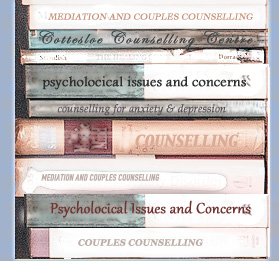At some time in our lives we are likely to experience or witness an event which threatens our safety or life, or that of others around us. This could be a car accident or other serious accident, physical or sexual assault, a natural disaster such as fire, floods or cyclones or for some, the experience of war or torture. Some individuals may have experienced multiple events including childhood violence or abuse.
After a disaster or traumatic event, those involved often find it hard to cope and may take a while to come to terms with what has happened. Many challenges in dealing with the experience will be present, both in the immediate aftermath and in later weeks and months.
Each person has a unique way of responding to and recovering from a traumatic event. It is common for people to feel a wide range of emotions including fear, shock, numbness, sadness, guilt, anger, helplessness, frustration, anxiety, depression, risky alcohol and drug use together with difficulties in relationships, work or study. These reactions are normal and will in most cases become less intense after a few weeks.
Additionally, the problems experienced by someone who has gone through a traumatic event can have a significant impact on their family, friends and community.
How might Trauma affect you?
Very strong reactions are normal following a traumatic event:
- Thoughts – you might experience flashbacks, intrusive memories about the event or question some of your long held beliefs about your safety, how much control you have over your life and how predictable the world really is
- Physiology – an increased heart rate, shallow or erratic breathing, feel ‘jumpy’ or agitated, on edge, poor concentration and memory, increased sweating, poor sleep and nightmares
- Behaviours – you might engage in risky alcohol or drug use, impulsivity, apathy, experience reduced motivation, social withdrawal including from family and friends in an attempt to avoid reminders of the traumatic event
- Feelings – you might feel intense fear, terror, helplessness, shock, numbness, sadness, guilt, anger, hopelessness, frustration or depression. Your feelings may swing rapidly from minimum to maximum
If the above reactions persist beyond two weeks or are interfering with your relationships, work or study, seek professional help from your General Practitioner or a Counsellor.
Self Care
The support and care from family members or friends is crucial in the early stages after a traumatic experience. All the support systems and resources that you usually use should be maintained, for example, if you managed stress or tension by exercising then it might also help you to manage after a traumatic event.
It is very important to maintain your daily routine, including resuming work or study as soon as possible but refrain from becoming overly busy. Acknowledging you have experienced something major that was overwhelming allows you to take your time in the recovery process. Talk about how you feel and what happened only when you are ready to. Engaging in relaxing and enjoyable activities is particularly important when life has been turned upside down by a traumatic event.
Avoid using alcohol or drugs to cope with the distress. Withdrawing from family and friends to avoid being reminded of the event is unhelpful – remain connected to these significant people and engaged in familiar activities if you are able.
Recovery
Emotional recovery is different from recovery from a physical illness. It does not mean that all the pain and suffering will disappear. Rather, it may mean having less intense reactions to stress and reminders of the trauma, an improved ability to manage problems and greater confidence in one’s ability to cope.
Recovery is not something that happens all at once and usually includes more than one strategy. It includes trying to make sense of what happened, learning to manage strong feelings and finding ways to return to daily routines that include your work and enjoyable activities.
While most people will recover with help from family and friends, this is not always the case. If you are having difficulty with anxiety, depression, posttraumatic stress symptoms (PTSD), risky alcohol and drug use, together with difficulties in relationships, work or study, then counselling may be appropriate and helpful for you.
If you would like further information about recovery from reactions to traumatic experiences or would like an appointment you can contact Winkie by phone or email.
Main Sources: Principles of Trauma Therapy, a Guide to Symptoms, Evaluation and Treatment; John Briere & Catherine Scott; Sage Publications 2006 Australian Centre for Posttraumatic Mental Health; www.acpmh.unimelb.edu.au The Body Remembers, Unifying Methods and Models of Treatment of Trauma and PTSD; Babette Rothschild; W.W Norton & Co; 2003 Trauma and Recovery; Judith Herman; Basic Books 1997
